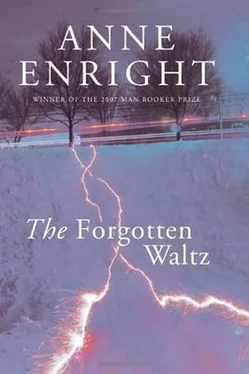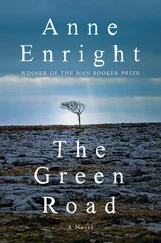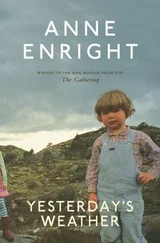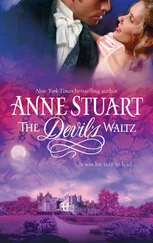The Shoop Shoop Song (It’s in His Kiss)
AFTER THE PARTY, things went quiet for a while. There was something too intimate there, that did not suit us – or did not suit me. I had flashbacks to the top of the stairs and, in the whiteness, I seemed to grow and shrink as I reached out my hand to open Seán’s bedroom door. I’d startle back to myself to find the taxi man still complaining, or some meeting called to an unsatisfactory conclusion while I sat on, my files scattered in front of me.
‘See you Tuesday.’
‘Yes. Yeah sure.’
It wasn’t just me. There was a lull in the beginning of that year; a sense of in-taken breath. The boss was in Belize, of all places, looking at a villa. Fiachra’s baby refused to arrive. Seán’s report was not due until the first of February, but nobody seemed wild about Poland anymore. I don’t know how it translated into euros and cents, I just remember it as a mood; how Warsaw, whose streets I had so recently walked, became as foreign to me as it had been when I did not know their word for Thursday and never knew I might want to. Who would have thought, growing up as a nice Irish girl, that this language would give me such pleasure? And those Polish men, my goodness, so proud and sexy as they bowed – some of them actually did do this – to kiss my outstretched hand. I mean, I nearly bought a flat there. But even then, in January 2007, it had started to go a bit cabbage-shaped. Outside the window, the day refused to stretch. Even the planet was taking its time.
One day towards the middle of the month, I answered my mobile to a withheld number and Seán was on the other end, as I knew he would be; everything to play for in the silence after he said, ‘Hi.’ And also nothing. I was ready – I have always been ready – just to walk away.
‘Hello,’ I said.
‘When can I see you?’ he said.
The pain I felt was so sudden and unexpected, it was like being shot. I looked down the length of myself, as if to share the news with my body, or to check that it was all still there.
We went to the Gresham again. Seán paced the room, he said, ‘We need somewhere. Jesus.’
I caught him from behind and put my face against his back. I reached for his hands and crossed them over his stomach, as if to reassure him that the party was over, as Christmas was over, that whatever happened – if anything had actually happened – was something out of time.
But he was fierce and preoccupied and lay afterwards staring at the ceiling. He put his hands over his face, and pushed them up and over his eyes, which opened again as soon as he was done.
If I had a picture of that time of our lives it would be this: Seán’s face disappeared under his hands, his neck red to the collarbone, and the rest of his body strangely white. There is more if I want to think about it: the sepia blush of his private parts, the condom slack and yellow, his chest hair turning white. Or I can see his hands, which I loved, square tipped and intelligent, his eyes beneath them grey as a January sea.
He shifted over on to his side and stroked my face. He said, ‘You’re lovely, you know that?’
I said, ‘You’re not so bad yourself.’
Seán filed his report and the boss took it off home with him and nothing more happened; it might as well not have been written.
And so it went. Winter refused to shift into spring, and for a while it seemed as though we knew what we were doing. We met every second Friday and sometimes, if he could manage it, the Friday in-between.
At first, I chose my clothes with great care. But we were so seldom dressed; after a while I just wore things that would not get too creased when they ended up on the floor.
There is something so open about a hotel bed, the duvet kicked away; it was like a plinth, or a padded stage, and the shapes we made there were more sweet and anguished for seeming abstract, as we fitted together our jigsaw love, one way, or another, ending up one evening at dusk, with me spooned around the curl of his body on the bare sheet; his eyes, when I lifted my head to check, burning with the impossibility of it all.
When I think of those hotel rooms, I think of them after we left, and only the air knew what we had done. The door closed so simply behind us; the shape of our love in the room like some forgotten music, beautiful and gone.
After we made love – which we always did first, for fear, almost, of becoming friends – afterwards, when it was safe, Seán would talk to me about his life and I would be interested, looking at him beside me, dazed by the details. The corner of his mouth, for example, which was the precise location of his charm. This was where it happened; at the point where his lower lip doubled back from the upper, the angle – I had kissed it – where they divided and met. In its slow lift, the charm of a smile you do not trust, and like all the more for that.
Seán did not talk about Evie, or about his wife. He did not mention the house in Enniskerry, or the house overlooking the beach in Ballymoney, though he was happy to talk about anything else. More than happy. Seán loves to chat and I love to chat, and there were times when we caught hold of ourselves for getting on too well. It was in no one’s interests (we both knew this) to have that kind of a good time.
We stayed until dark and each time the dark came later.
When Seán was young, he told me, he had a red setter that would feck eggs from a local hen-house and his mouth was so soft, he could run back home without cracking the shell.
He talked about Boston where he did his MBA. Two years in America makes you an outsider for the rest of your life, he said: coming home was so strange, it was like arriving in from a long walk on a beautiful autumn day to find everyone still huddled around the fire.
He told me about his family: an older brother who annoyed him for no exact reason – he had blown this brother out of the water, anyway, and this made him a bit sad. Winning was a lonely occupation for Seán – though that never seemed to stop him. The brother was a secondary-school teacher who thought Seán was a snob. Seán said he was anything but – he thought snobbery bad for business – but still the brother used to say, So how’re the ghastly middle classes , and borrow things that he never returned; box sets, a cast-iron cooking pot, a buoyancy aid from the kayak down in Ballymoney. The brother was also, I discovered when I finally met him, six foot two, with a smile that curled up, not just on one side, but on the other too; he was Seán on steroids, and gentle with it. I thought, when he looked at me in his lovely, disappointed way, that now would be a good moment to go to the nearest convent, if such a thing still existed, and take the veil – I mean, on my knees – that man was so sexy, he was the point of no return.
Anyway. According to Seán, there was this useless older brother, with his chain-store jackets and his fat wife. There was also a younger sister, much loved, who was an artist down in Kilkenny. There was a father some years dead, and a mother who was very much alive. I couldn’t tell what the problem with the mother was, except it was clear that the wrong parent had died. The way he talked, you’d think she had actually done it; slipped something into her husband’s tea, or taken a pillow to his sleeping face; the mere fact of her was enough to put the man in an early grave.
And this was interesting, because for the Moynihan girls – and this was our dirty little secret – it was the right parent who had died. Myself and Fiona might fall out over his memory from time to time – we would argue what he was, or was not (violent, for example; Fiona would say, ‘He was never violent’) , but there was no doubt that we felt easier about the world, for the fact that our father was no longer in it. We loved him, of course, but we both knew that life was simpler now that he wasn’t just ‘out’, or ‘late’, or even ‘gone on a wander’, but definitely and definitively dead, dead, dead. No coming back. No late-night key scratching for the lock.
Читать дальше












